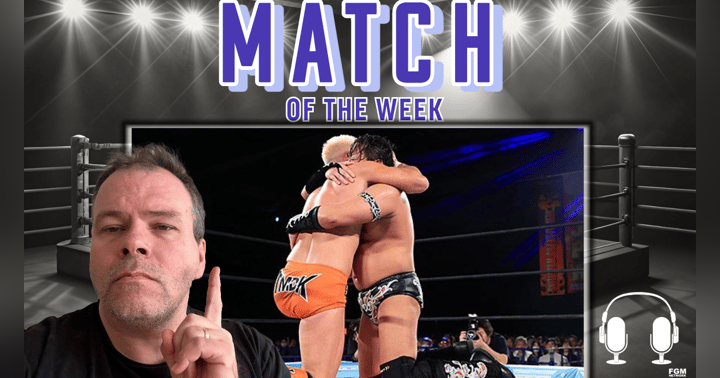Dump Matsumoto Draws Blood: Queen of Villains, Episode Three Review

Episode three of Queen of Villains kicked off with a bang, as we witnessed a high-energy tag team match between the Crush Gals and Yukari Omori & Jumbo Hori. At this point in the series, the Crush Gals were becoming unstoppable—a rising force in popularity with their dynamic in-ring chemistry and short haircuts, further solidifying their identity. However, as I mentioned in previous reviews, recapturing the electric atmosphere of the 1980s Joshi scene was no easy task. It felt almost impossible. The intensity of this moment was nearly impossible to recreate, but it gave fans a glimpse into what made the Crush Gals such an iconic team.
Interestingly, this episode touched on a key aspect of Japanese wrestling that set it apart from its Western counterpart: the idea of enhancement talent. In Japan, wrestlers who lost weren’t automatically seen as "jobbers." Instead, they were foils—characters designed to elevate their opponents. This was an important distinction and highlighted how different the approach to storytelling and in-ring psychology was between the two wrestling cultures.
As the episode progressed, we saw Dump Matsumoto continuing to evolve into her infamous heel persona. Under the guidance of Devil Masami, Dump drew blood from a garbage can, marking her first real taste of villainy.
Also, Yuriyan Retriever’s portrayal of Dump once again shone, making her character both likable and human, despite the brutal role she was growing into.
Another notable moment came later in the episode, as the series began to show the influence of martial arts and combat sports on the Joshi women's wrestling scene, especially through Chigusa Nagayo and her love of Akira Maeda and martial arts-style pro wrestling, which was absolutely on fire in the mid-'80s.
We also saw a brief but impactful moment where Jaguar Yokota confessed to Mr. Matsunaga, “I was never treated like a champion.” It was a moment that revealed the deeper emotional struggles of these wrestlers, something that made the series stand out beyond just in-ring action.
The real-life Crush Gals (Chigusa Nagayo & Lioness Asuka) perform the song "Bible of Fire" in Japan
One of the pivotal moments in the episode was the Crush Gals’ musical performance, which quickly turned chaotic when Dump and Devil Masami interfered, setting up a tag match between the two teams. Masami was outstanding here, both in performance and character, and the tension rose as Chigusa and Devil’s rivalry escalated into a shoot-style altercation. This match represented the idea of "blood" and its significance in wrestling—how it could symbolize both violence and vulnerability. For me, this was easily the most exciting “match” of the series so far.
The episode also touched on some darker themes, such as the Matsunaga brothers’ involvement in gambling on wrestling. It was a vague and problematic topic, but it raised interesting questions about authenticity in the world of professional wrestling. Were they gambling on the match outcome, or something deeper like audience reaction and performance? It was left intentionally unclear, but the tension lingered.
This match represented the idea of "blood" and its significance in wrestling—how it could symbolize both violence and vulnerability.
Bull Nakano also made a poignant appearance, crying as she got caught up in the drama created by wrestling magazines about the Crush Gals—her “debut” on the series. This moment underscored the fine line between reality and kayfabe, showing just how invested the wrestlers—and the fans—were in the stories being told, often at the expense of the wrestlers' personal lives.
The episode ended on a dramatic note, as Dump Matsumoto, now fully embracing her heel persona, brought a chain wrapped around her fist into the ring. It was a powerful visual that cemented her transformation and set the stage for what was to come. Episode three of Queen of Villains was where things really started to heat up, both inside the ring and out.
Read our Queen of Villains Episode Two review, and keep an eye out for our recap & analysis of Episode Four tomorrow.






